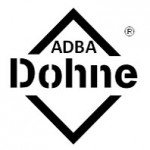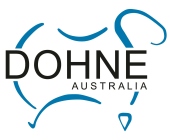Australian Dohne Merino sheep genetics excelling in South America
GABRIELLE JOHNSTON, The Weekly Times, August 3, 2016
AUSTRALIA looks set to continue being the source of South America’s Dohne Merino sheep genetics with the trade worth a significant amount to local breeders.
Dohne industry consultant Roberto Cardellino from Uruguay said at the recent Global Dohne Conference this was because South America couldn’t import genetics from South Africa.
“Due to sanitary reasons, Uruguay, Argentina and Chile are not allowed to import genetics from South Africa,” he said.
Mr Cardellino said South America started importing the sheep genetics from Western Australia in 2002.
“Our first importation on the whole was more than $US150,000,” he said.
Mr Cardellino said the Dohne was achieving great results in South America when crossed with the Corriedale.
“In the majority of the South American countries the predominant breed is a Corriedale. It did a good job in the past, but now doesn’t produce the wool that has more value, and it’s not as good in terms of production of lamb and meat as a Dohne,” he said.
“We thought that bringing in the Dohne would be a good opportunity for Corriedale breeders to use the breed that would bring the diameter down and would improve the production of lamb and good quality of meat,” he said.
“Also, some Merino breeders started to use the Dohne in order to maintain the production of fine wool and also to produce a bigger animal, better conformation, more meat and more reproduction.”
Mr Cardellino said results were “very, very good” when comparing Dohne and Dohne crosses with Corriedale and Merinos.
“Crossed with a Corriedale in one generation there’s a reduction of (fibre) diameter of nearly 4.5 microns, which is huge, a much better performance in terms of lamb production, and better conformation,” he said. “There was a slight reduction in fleece weight but much higher value, of course.”
Mr Cardellino expected they would continue to seek Australian Dohne genetics.
“In Uruguay we are connected with Australia in terms of the genetic evaluation run by Sheep Genetics Australia. It is a good reference for us in terms of where we are going and which is the best source of genetics for us,” he said.
“There is a bright future for the Dohne in South America as a breed.”
Guest Speaker, Roberto Cardellino South America, Director DELTA Agri-consultants. Global Dohne Conference.












